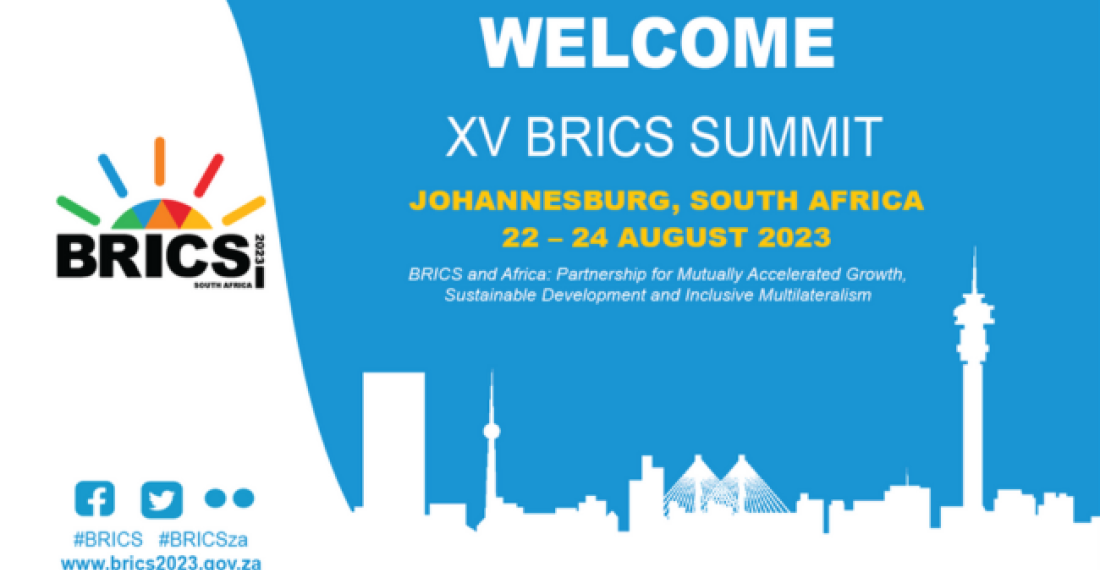The summit of BRICS - the group bringing together Brazil, China, India, Russia and South Africa and concluded this morning with an invitation to six countries to join as from 1 January 2024.
Speaking at a briefing at the end of the summit, the president of host country South Africa, Cyril Ramaphosa, said
We reiterate our commitment to inclusive multilateralism and upholding international law, including the purposes and principles enshrined in the United Nations Charter. We are concerned about ongoing conflicts in many parts of the world. We stress our commitment to the peaceful resolution of differences and disputes through dialogue and inclusive consultation.
The South African president added "We adopted the Johannesburg II Declaration which reflects key BRICS messages on matters of global economic, financial and political importance. It demonstrates the shared values and common interests that underlie our mutually beneficial cooperation as the five BRICS countries."
Ramaphosa said that BRICS is a diverse group of nations.
"It is an equal partnership of countries that have differing views but have a shared vision for a better world.
As the five BRICS countries, we have reached agreement on the guiding principles, standards, criteria and procedures of the BRICS expansion process, which has been under discussion for quite a while.
We have consensus on the first phase of this expansion process, and further phases will follow.
We have decided to invite the Argentine Republic, the Arab Republic of Egypt, the Federal Democratic Republic of Ethiopia, the Islamic Republic of Iran, the Kingdom of Saudi Arabia and the United Arab Emirates to become full members of BRICS. The membership will take effect from 1 January 2024.
We value the interest of other countries in building a partnership with BRICS.
We have tasked our Foreign Ministers to further develop the BRICS partner country model and a list of prospective partner countries and report by the next Summit."
President Ramaphosa concluded by saying
Through this Summit, BRICS has embarked on a new chapter in its effort to build a world that is fair, a world that is just, a world that is also inclusive and prosperous.







